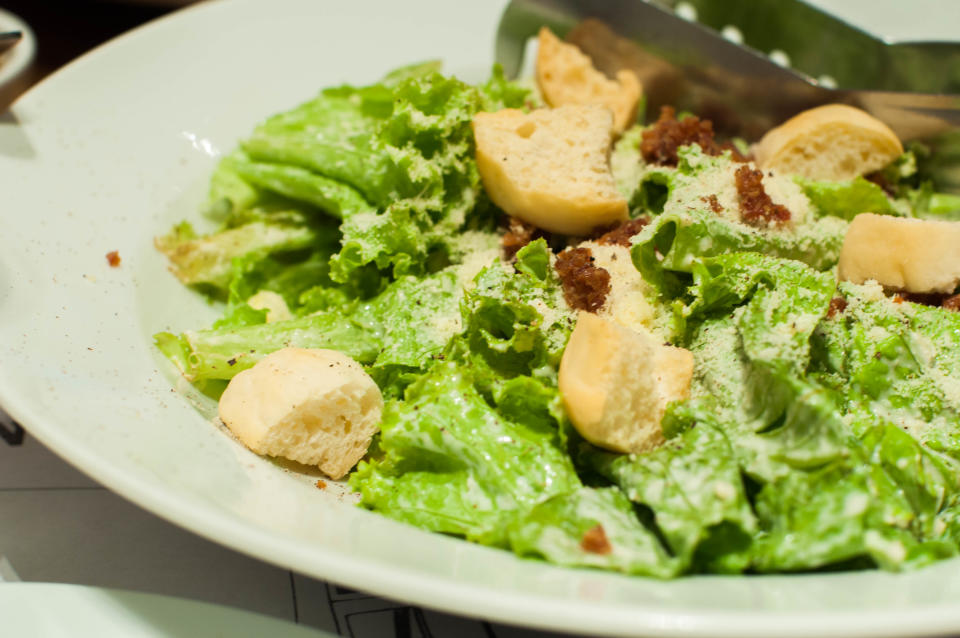No, restaurants: It's not 'safe' to serve romaine
The Centers for Disease Control and Prevention (CDC) issued a warning recently advising Americans not to eat, sell or serve romaine lettuce due to the risk of E. coli infection. But, according to reports, some restaurants are still serving it. Of those that do, many are telling customers who ask that their romaine is “safe,” even though the CDC warned that it has caused 32 infections so far.
Food safety experts are not happy about the discrepancy.

“Right now, the CDC has issued this warning, and this comes on the heels of an earlier outbreak and recall of romaine lettuce this spring. Until such a time that they find the true cause of the outbreak, you should not eat any romaine lettuce,” food safety expert Darin Detwiler, director of the Regulatory Affairs of Food and Food Industries program at Northeastern University, tells Yahoo Lifestyle. Ninety-six people were hospitalized (five of whom died) during the last outbreak in romaine lettuce, according to the CDC.
“There is no way a server in a restaurant could know that their romaine lettuce is safe unless they cook it to a sufficient temperature and for a sufficient time, which I doubt many restaurants do,” Felicia Wu, a professor in the Department of Food Science and Human Nutrition at Michigan State University, tells Yahoo Lifestyle. “It is surprising that any restaurants are now serving romaine lettuce. After all, this E. coli outbreak has sickened people in multiple states, and CDC has not traced the bacterial contamination to just one source; it applies to all romaine lettuce sold around the country.”
If you happen to visit a restaurant that tries to claim its romaine is safe, it’s really best to avoid the food. “I would send it back,” Benjamin Chapman, an assistant professor and food safety extension specialist at North Carolina State University, tells Yahoo Lifestyle. “When the CDC comes out with a message that says ‘Don’t eat romaine lettuce,’ you should heed that advice,” he says. “Right now, we don’t have any indication that it’s romaine from any certain part of the country or a certain company. It’s a standing blanket statement.”
“You have to say that it’s not a risk you’re willing to take,” Detwiler says. “You as the consumer have the voting power with your dollar to say that my health and the health of my family is more important than someone trying to make excuses to continue to sell this.”
If you’re served something with romaine lettuce in it, you don’t want to remove the lettuce and eat everything else, Wu says. “If the dish contains (uncooked) romaine lettuce, it should be sent back or thrown out,” she says. “If it is infected with E. coli, it can cross-contaminate other foods.”
And, if you’re not sure if the leafy green you’re served is actually romaine, ask. “They should be able to say yes or no,” Detwiler says. “Then, you go from there.”
As for whether you should avoid leafy greens altogether, it’s up to you. If you feel comfortable enough that you can tell your romaine from your iceberg (a common substitute), then you’re probably OK. “The CDC has called out romaine — they didn’t call out any other kind of lettuce or leafy green,” Detwiler says. Wu agrees: “Other leafy greens are not currently implicated in the E. coli outbreak, so until further notice it should be safe to consume these,” she says.
Read more from Yahoo Lifestyle:
Follow us on Instagram, Facebook, and Twitter for nonstop inspiration delivered fresh to your feed, every day.
